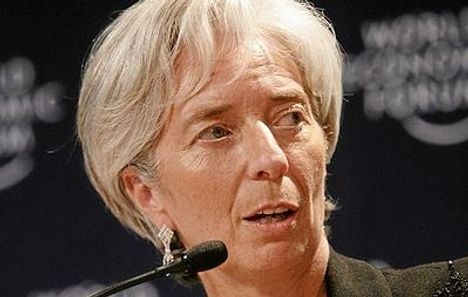China’s central bank chief voiced support Monday for Christine Lagarde’s bid to lead the International Monetary Fund, Dow Jones Newswires said, in Beijing’s first public statement on the issue.
Zhou Xiaochuan, speaking in London as he accompanied Premier Wen Jiabao on a trip to Europe, said China had already expressed “quite full support” for the French finance minister’s candidacy at the global lender, the report said.
“Of course we still do not know what the final situation will be.
Currently, there doesn’t seem to be anything unclear about it,” he was quoted as saying, indicating front-runner Lagarde’s chances of clinching the top job were high.
The 187-nation Fund has been left reeling after managing director Dominique Strauss-Kahn resigned on May 18 to fight sexual assault charges in New York.
He denies the allegations.
Lagarde visited China earlier this month to try to win support for her candidacy. She told AFP she felt “very positive” after her talks with officials, but Beijing has remained non-committal in public about her bid.
China, India and other emerging nations have balked at Europe’s traditional lock on the leadership of the Washington-based IMF, and Lagarde has vowed to promote reforms to make the lender more representative of the global economy.
The 55-year-old former international lawyer is up against Mexico’s central bank governor Agustin Carstens. But even he has admitted Lagarde’s chances of being elected by the board “are quite high.”
Lagarde has the backing of Europe, which holds seven of the 24 seats on the executive board.
The United States, the largest IMF stakeholder with nearly 17 percent of the vote, has not publicly endorsed either Lagarde or Carstens, considered an emerging-market candidate.
Under a tacit agreement between the United States and Europe, the leadership of the IMF has always gone to a European, while the top job at the World Bank has always gone to an American.



 Please whitelist us to continue reading.
Please whitelist us to continue reading.
Member comments